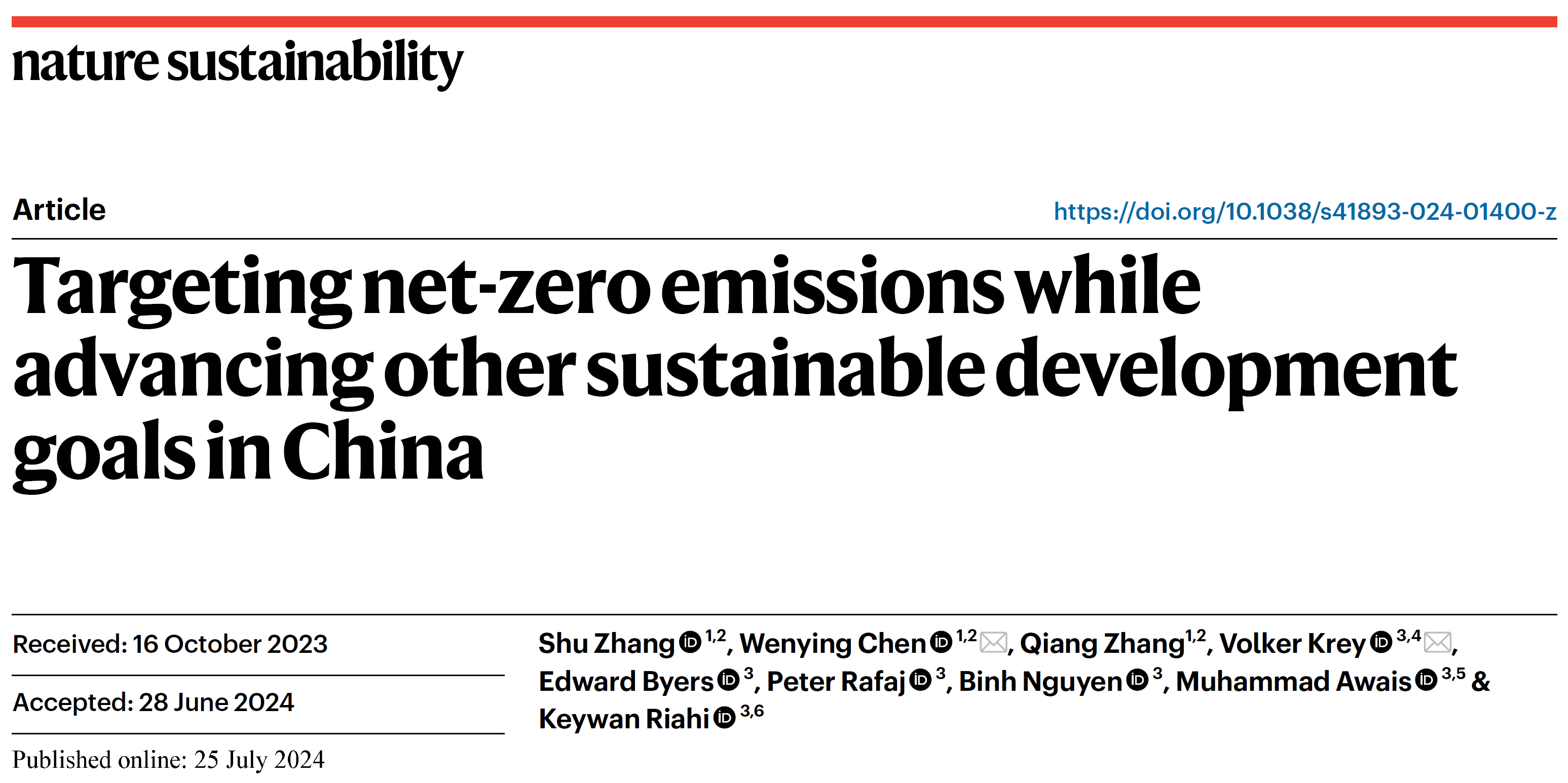Professor CHEN Wenying at the Institute of Energy, Environment and Economy, Tsinghua University and collaborators proposed a multi-model integrated assessment framework to explore and quantify the co-benefits and trade-offs of China's carbon-neutral target on environment-related sustainable development goals. Recently, the research results were published online in Nature Sustainability with the title “Targeting net-zero emissions while advancing other sustainable development goals in China”.

Abstract
The global net-zero transition needed to combat climate change may have profound effects on the energy–food–water–air quality nexus. Accomplishing the net-zero target while addressing other environmental challenges to achieve sustainable development is a policy pursuit for all. Here we develop a multi-model interconnection assessment framework to explore and quantify the co-benefits and trade-offs of climate action for environment-related sustainable development goals in China. We find that China is making progress towards many of the sustainable development goals, but still insufficiently. The net-zero transition leads to substantial sustainability improvements, particularly in energy and water systems. However, the co-benefits alone cannot ensure a sustainable energy–food– water–air quality system. Moreover, uncoordinated policies may exacerbate threats to energy security and food security as variable renewables and bioenergy expand. We urge the implementation of pragmatic measures to increase incentives for demand management, improve food system efficiency, promote advanced irrigation technology and further strengthen air pollutant control measures.
The link: https://doi.org/10.1038/s41893-024-01400-z